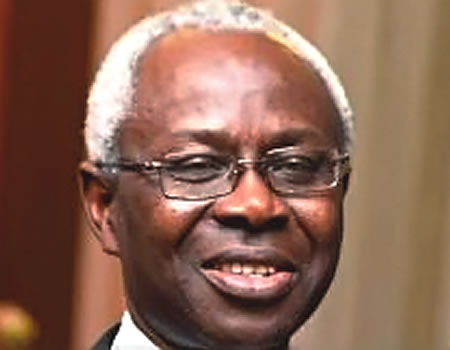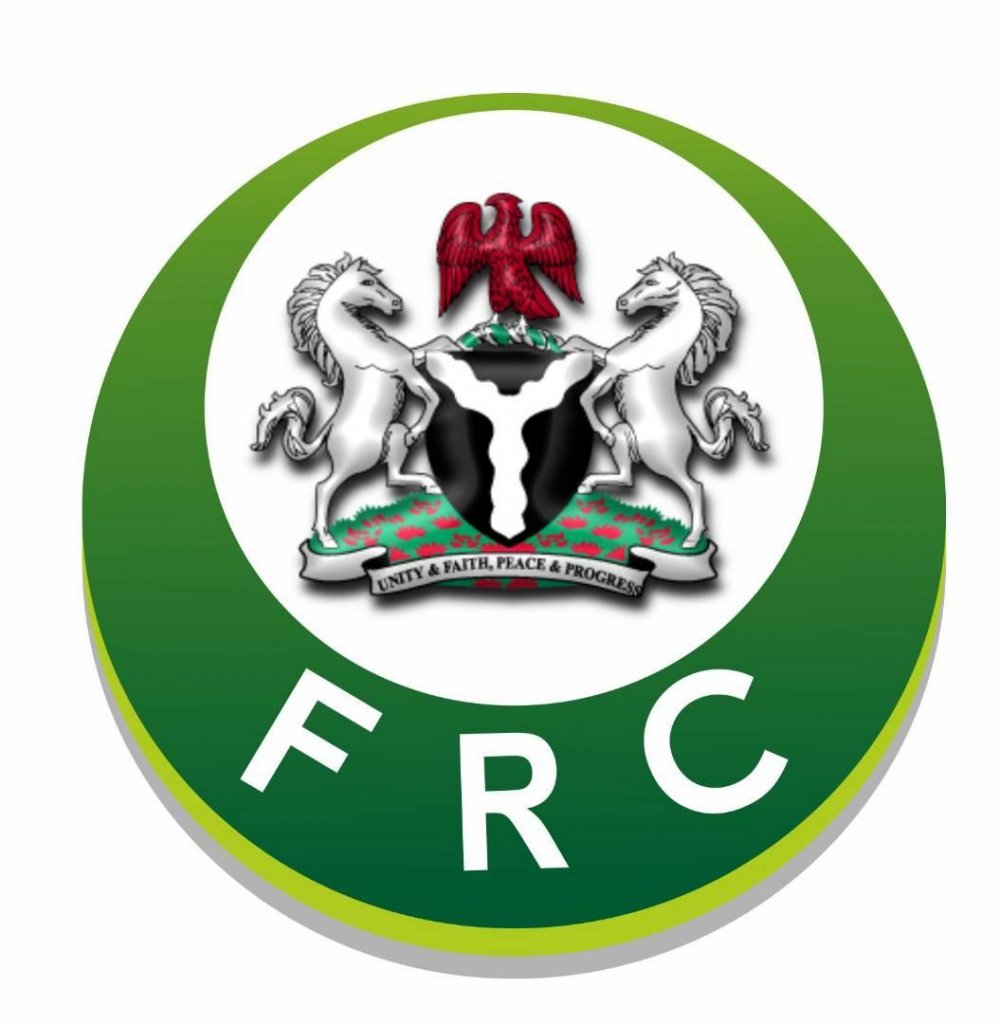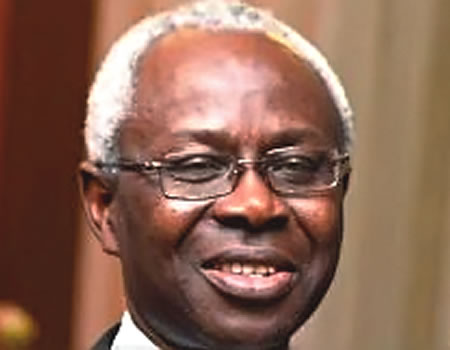How Management’s Incompetences, Cover-ups Destroy FRC.
By BADEJO ADEMUYIWA.
The vehicular traffic was unusually long on Wednesday 21 December 2016 on Mobolaji Bank Anthony Way en-route Ikeja. Car horns from the Oduduwa Street junction on the long-stretched road to the complex of the Lagos Sheraton Hotel and Tower depict the seriousness and the mood of the visitors that besieged the serene atmosphere of the hotel.

They have all come to the Annual Financial Reporting Summit of the Financial Reporting Council of Nigeria (FRC), where stakeholders rub minds and fine-tune the Council’s agenda and that of the global body, the International Accounting Standards Board (IASB) for the upcoming year.
The sanctions meted out to both StanbicIBTC Bank and the almighty KPMG by the FRC and which the courts in the land endorsed heighten the ratings of the FRC as a regulator to listen to, to avoid being the next scapegoat.
Also, the suspension and eventual removal of the former governor of the Central Bank of Nigeria (CBN) Sanusi Lamido Sanusi over his indictment in the outcome of the probe by the FRC that was authorised by former President Goodluck Jonathan was still fresh.
The scenarios above underlined the powers of the FRC and made the annual summit a must-to-attend for accountants, chief financial officers (CFOs), chief risk officers, investment managers, company secretaries, audit committees, auditors, journalists, etc, from both public and private sectors in Nigeria.
Unknown to Jim Obazee, the then Executive Secretary, the event was to become his valedictory service and the last for the organisation. He was removed 18 days later and FRC staff told InsideBusiness that the annual summit has since become history.
With the stoppage of the annual summit by the current management, this in effect means that there have been no new accounting standards (statement of recommended practice in areas not covered by the IASB), no new rule and no new guidance has been issued by the FRC since Obazee’s exit in January 2017.
The implication of the lack of qualitative guidance from the FRC for the Nigerian economy is that the country may not have kept up with the latest in international financial reporting. The effect of this is that Nigerian companies will find it difficult to access foreign loans because there are no fresh rules that guide their financial statement preparation, presentation, and disclosures in line with international best practices.
This action by Daniel Asakpokhai-led management has led the country back to the fears exhibited by both Idris Waziri, former Minister of Commerce and Ibrahim Dankwambo, the former Accountant-General of the Federation that partially led to the creation of the FRC.
Lack of understanding of the provisions of new international accounting standards is just one of the rots that have crippled the FRC according to some staff who spoke to InsideBusiness.
Asakpokhai previously worked at PriceWaterhouseCoopers (PWC), one of the Big Four before his appointment as the Executive Secretary of the FRC. Comments by his colleagues at PwC show they doubted his ability to provide effective leadership for the Council because of his lack of basic accounting knowledge, which is a key skill-set, other than his ICAN certificate. At the FRC however, the staff believed that Asakpokhai suits the plan of his promoters who brought him allegedly to destroy the hitherto high-flying Council owing to his management style.

Unknown too, the choice of Asakpokhai for the FRC job despite his lack of basic formal accounting degree was allegedly compensatory. The paths of Asakpokhai and the former Minister of the Ministry of Trade and Investnent, Okechukwu Enelamah that recommended him for the job crossed when they were both preparing for ICAN professional exams. Enelamah, who also holds a degree in Surgery, has no formal accounting training but, also holds an ICAN certificate.
However, at the detriment of the nation’s economy and also to deflate the FRC, Asakpokhai, who is a graduate of computer science was compensated with FRC plum position that is largely saddled with accounting research. It is no gainsaying that Enelamah, the then Minister intentionally set the FRC on the path of failure by making this ill-fated recommendation to the Federal Government. A decision that has now remained costly for the nation of over 200 million people and one of the largest economies on the African continent.
Simply put, Asakpokhai’s competence is not in accounting research, forensic or auditing coupled with the fact that he is also allegedly, not good at reading financial statements. So, he could not even stand up not to talk of keeping up the momentum of the FRC when Obazee exited. If anything, Daniel Asakpokhai is a testament, that, it is not everyone that is called a partner, in the firm of external auditors, or holds an ICAN certificate with no basic accounting degree that is a financial reporting expert.
Dotun Sulaiman, who was appointed as the chairman of the board paraded an intimidating credential according to his profile on Global Business Foundation (GBF).
Sulaiman chairs several companies across several sectors of the economy with a major emphasis on the emerging electronic payments industry and companies in the entrepreneurial stage. Dotun, as he is popularly known, actually started life as a career diplomat, including a stint at the Nigerian Embassy in Washington DC as a consular officer from late 1976 to early 1978. In late 1978, he joined the Management Information Consulting Division of Arthur Andersen & Co. [later Andersen Consulting, now Accenture] where he rose rapidly to become a Local Partner in 1984 and a Partner in the Worldwide firm in 1989.
According to GBF, Dotun took over from the founding Managing Partner, Dick Kramer in 1993 and remained Country Managing Partner for both Arthur Andersen, the Audit and Tax firm as well as Andersen consulting until 1999 when with the complete separation of the consulting business from the Arthur Andersen Worldwide Organisation, he became the Country Managing Director of Accenture, the new name of the newly independent management and technology consulting arm.
He is also a founding member of the Nigerian Economic Summit Group (NESG) and a member of the Summit’s Board since its inception in 1993 until December 2006.
Staff at FRC, however, said that competency and wide industry knowledge may not have been the consideration for Dotun’s appointment. They alleged that Dotun is a ready tool for Enelamah to alter certain documentations that is against the former minister who was fingered in several shady deals by the Obazee led FRC. Curiously, Dotun was the first employer of Okechukwu Enelamah at the then Arthur Andersen. Our guess may not, therefore, be far from yours.
Dotun Sulaiman, findings show, was standing trial before the Obazee-led FRC on the alleged illegal repatriation of some billions of Naira by Cadbury Nigeria Plc to its owner, Mondelez International Inc, in a manner allegedly similar to what StanbicIBTC was sanctioned for and ordered to restate its two years account.
Since his appointment, however, the case for which the FRC was probing Cadbury Nigeria had been shoved under the carpet while the case against Eko Hotels which has PriceWaterhouseCoopers, where Asakpokhai came from, as its auditors have also been stopped.
Findings by InsideBusiness at the FRC show that the current tenure of both Dotun and Asakpokhai may go down as the worst in the FRC that has now fallen from grace to grass.
The Council holds regularly, quarterly staff meetings where work issues and challenges are discussed as well as solutions to them. Six of such meetings had only held as against 12 that was expected between February 2017 and 2019 while none has held in 2020.
“We also, usually hold annual staff retreat during Obazee’s tenure…none has been held since Asakpohai whose tenure expires 9 January 2021, took over,” noted an FRC staff.
FRC no longer penalises erring firms and this, they said, has increased the incidence of violations of the Council’s rules and financial reporting standards. For lack of sanctions, many companies, and government institutions have not bothered to submit their annual accounts to the Council for scrutiny.
“Owing to lack of penalties, our revenues have shrunk and made us beggarly,” says a staff who noted that the Council was hitherto, self-dependent during the tenure of Obazee. An unconfirmed report from the Ministry of Finance told InsideBusiness that Zainab Ahmed, the Minister for Finance, Budget, and National Planning bluntly refused when the FRC management appealed to her for budgetary allocation to assist the Council stays afloat in the face of its dwindling finances.
Ahmed allegedly told the Council’s management to devise strategies for the FRC to be self-dependent as it was during the days of Obazee.
Owing to the lethargy at the FRC that forced companies to ignore the financial reporting regulator, the same bug has caught up with government institutions which the Auditor-General of the Federation, Anthony Mkpe Ayine, last year August, lamented in an interview, the poor state of financial reporting in the public sector.
According to Ayine, in a national newspaper, “As at April 2018, about 109 agencies have not submitted (their financial statements) beyond 2013; while 76 agencies last submitted (their financial statements) for the 2010 financial year, and 65 agencies have never submitted any account since inception”.
An analysis of Ayine’s report shows that government agencies, despite the anti-corruption campaign, have increasingly become more reckless with public finance, as 323 agencies failed to submit reports in 2016. In 2015 and 2014, however, defaulters numbered 215 and 148 respectively.
Another area of deficiency on the part of the current FRC management is also manifesting in the insurance industry which is currently undergoing reform that the first phase will draw to a close December 31, 2020.
Recapitalisation could be through mergers, acquisitions, or revaluation of assets which the FRC is expected to ascertain as the exercise progresses.
“Since the current CEO has come, we don’t verify claims by companies. We only write them to go ahead with whatever they are doing in the name of ‘Ease of Doing Business’ without ascertaining their claims” noted a senior official who said “Ease of Doing Business” does not mean mere approval without verification of claims.
Obazee’s tenure defended the actions of the FRC in court as seen in the cases against StanbicIBTC Bank, during the probe of the CBN, Access Bank, and host of others via fiats obtained from the office of the Attorney General of the Federation. It is however disheartening, that, some of the cases won by the FRC had been upturned at the Appellate Courts owing to the failure of the current management to appear at the courts.
“FRC lost the case in the appeal by StanbicIBTC Bank to remove the criminality aspect on the NOTAP issue for which the bank has restated its two years account and paid N1 billion sanction,” said a manager in FRC who also cited the Audit Committee Chairman issue involving some shareholders.
Consequently, the FRC staff alleged that both the current Chairman and the Executive Secretary were appointed to the Council to scuttle the issues on which the FRC had gained upper hand.

As evidently seen in the United Kingdom, its FRC is in charge of the implementation of the corporate governance codes which all sectors adhere to. In Nigeria, however, since the forced exit of Obazee, the Council has lost that right.
The audit space also seems uncontrollable in terms of alleged arbitrary fees charged by auditors especially the Big Four firms which now charge between N900 million and N1 billion which companies lamented as another area where the inactiveness at the FRC is felt.
For instance, analysis of the 2019 Financial Statements of three banks shows that audit fees to the Big Audit firms are in billions of Naira. Zenith Bank paid a total N1.482 billion to KPMG, Access Bank paid N1.422 billion to PwC while GTB paid N1.407 billion to both Ernst & Young and PwC. UBA that is also in the category of the other three paid N968 million to PwC.
Another area, where the inactiveness of the FRC portends grave danger for the country, is that, up till now, the Directorate of the Audit Practice Standard which the FRC Act prescribes has not been set up while the provision on the joint audit is also, still excluded from the current Corporate Governance codes that the current management of FRC claimed that is being implemented.
The staff alleged that this was deliberate to allow the Big Four Audit firms and directors of blue-chip companies to do whatever they like.
Asakpokhai came from PWC while Dotun Sulaiman came from Accenture and also Cadbury Plc which he is now its chairman.
Section 7 of the FRC Act gives the Council the powers to do all things necessary for or in connection with the performance of its functions. However, the Council has not implemented Section 7(2f) which empowers it to require management assessment of internal controls, including Information Systems, controls with independent attestation, and also complies with the provision of section 7(2g) which gives it the powers to require code of ethics for financial officers and certification of financial statement by Chief Executive Officer and Chief Financial Officer of audit firms.
The FRC has also stopped the regular practice of reviews of registered professionals, which hitherto helps it to enforce compliance with the Act and the rules of the Council on registered professionals and the affected public interest entities as prescribed in Sections 8 (J and L) of its act.
The FRC is also currently de-emphasising registering professionals as it only registers companies’ directors once they pay the mandatory N10,000 in violation of Section 8 (f) of the Act, according to the staff
Currently, in the country, no one knows how audit firms review their quality control as the FRC has jettisoned the role to review professional accountants and also, the frequency of the reviews as encapsulated in Sections 60 and 61 of its enabling act.
Section 60 says “The Council or any officer authorised by it, in writing may review the practice of an auditor and may, for that purpose: (a) inspect any relevant book, document, and record in the possession, or under the control of the auditor, his partner or employee and make copies of, or take any abstract of, or extract from any such book, the document, and record in relation to a company under investigation subject to the consent of the public interest entity; and (b) seek information or clarification from any partner or employee of the professional.
Section 61 prescribes:(1) Annual quality reviews (inspections) shall be conducted for professional accountants that audit more than 20 public interest entities; all others shall be conducted every three years and the Council may order a special inspection of any professional accountant at any time. (2) The Council shall require registered professional accounting firms and other professionals to maintain for a period of not less than 6 years, audit work papers and other information related to any audit report, in sufficient detail to support the conclusion reached in the report and (3) The Council shall require evidence of a second partner review and audit approach that registered professional accountants adopted on quality control.
These roles, the staff alleged have all been jettisoned by the current management of the FRC in the efforts to protect the Big Four which have all been indicted for several infractions in other climes.
To these allegations of incompetence and cover-ups, Iheanyi Anyahara who is the most senior management staff in the absence of Daniel Asakpokhai who has not been in the office since February, refused to comment, citing a civil service rule.
“There is a substantive CEO. I am just holding the fort for him for a short period,” Anyahara said in a WhatsApp message to InsideBusiness
(Note: If you use the quotes from this content, you have agreed to give InsideBusiness.ng the News credit as the source and a backlink to our story.)



Comments are closed.